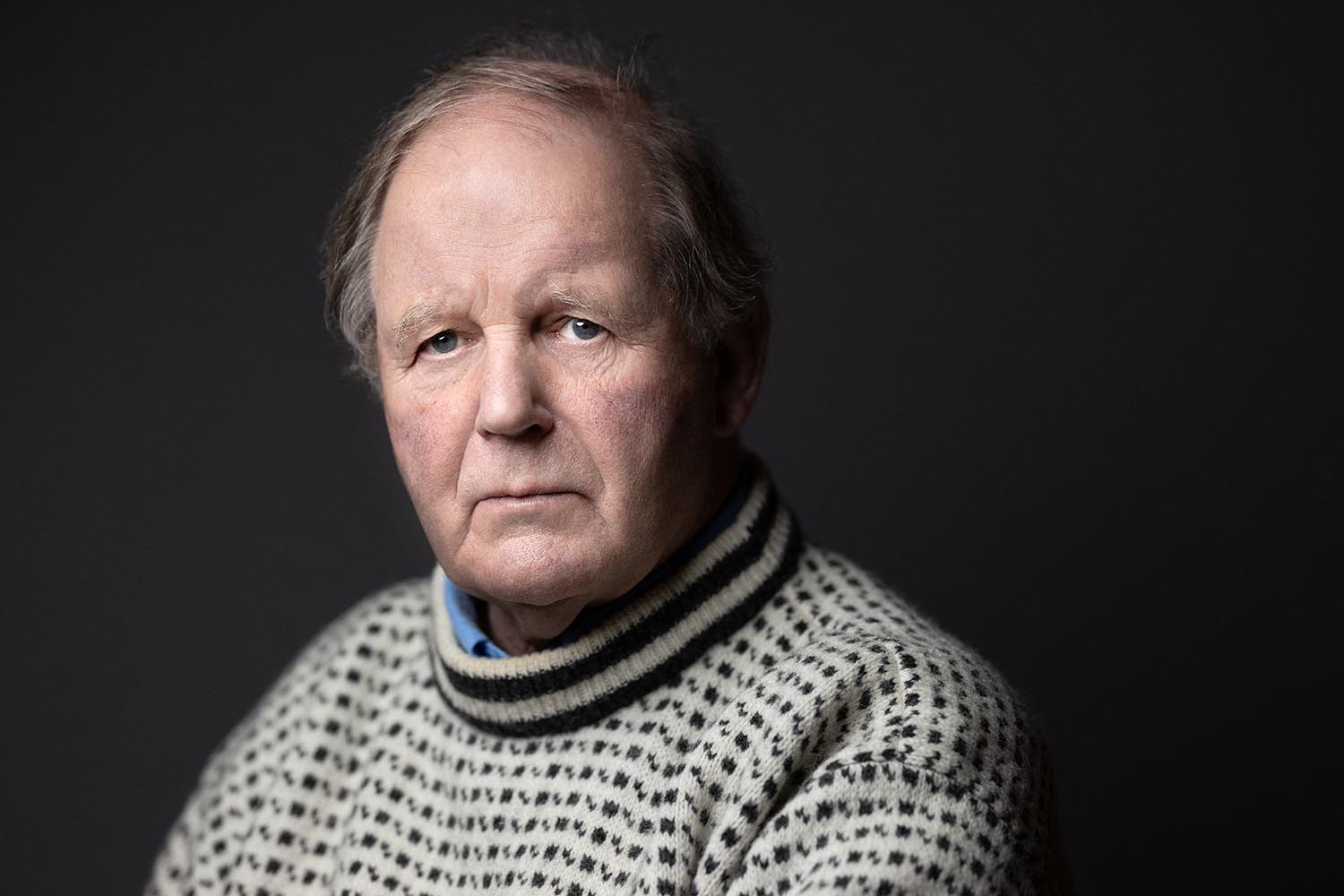Sir Michael Morpurgo, 81, worked as a teacher for a decade before becoming a writer and moving to Devon to set up Farms for City Children with his wife, Clare. Best known for War Horse, which subsequently became a critically acclaimed play at the National Theatre and film by Steven Spielberg, he has written more than 150 novels and served as children’s laureate between 2003 and 2005. His novel Kensuke’s Kingdom (1999), which won the Children’s Book Award, was recently adapted by Frank Cottrell-Boyce into an animated film. He is a contributor to The Gifts of Reading for the Next Generation, a collection of essays by leading authors about the books that shaped their childhood.
Why should we pass on “the gifts of reading” to the next generation?
Reading is a pathway to knowledge and understanding. It’s one of the ways children discover that what troubles them troubles other people – that they’re not alone in the world. It gives them empathy and an understanding of the lives of others.
Your essay for the book argues that it is important to pass on myths and legends to children. Why?
They’re part of who we are. For thousands of years, around fires, in halls, people have been telling tales. And it’s the tales that you grew up with that stay with you, very often, if they’re passed on – and the good ones very often are. I’m passionate about that, because I hate it when a good story dies.
From Beowulf to Treasure Island, you’ve rewritten many classic stories for children. Why?
These are the great stories of our time, by the great writers of our time. But children these days, understandably, find it extraordinarily difficult to read books where the language is complex and hard to access. Very often, like me when I was younger, they can get put off a book that way.
You have to give a 10-year-old a taste for things like Shakespeare. If they read the story and like it, it’s a way of opening the theatre door for them. As a storymaker, I find it very instructive to see how others made their stories and the best way for me to do that is by trying to retell their story myself. Every time I do it, I come out a better writer, because I learned something from a master.
Are these tales falling out of fashion?
Yes, but you can’t blame children for that, if these tales aren’t put in front of them in a way that they can enjoy, living in this world where stories have to move very fast and be very visual and stimulating. The challenge is trying to find a place for these old tales in this new world. When I retell an old story, I tell it for the ears and lives of children today. The best tales can bring old realities into the modern world, with characters who have the same frailties, fears and doubts as we do. They may have a different context, but they live the same lives, they breathe the same air.
Newsletters
Choose the newsletters you want to receive
View more
For information about how The Observer protects your data, read our Privacy Policy
The National Literacy Trust recently found that, among children, reading for pleasure is at its lowest recorded level. How can we reverse this trend?
Bring parents on board through school book clubs, and teacher-inspired collaboration. Ensure every primary and infant school in the country has a well-stocked library. Never close another public library, and open or revive those we have. In school, ensure reading to the children is part of every school day, not fodder for a testing regime. All teachers to be made aware during training of the importance of developing a love of reading for themselves. A focus on liberating children from the tyranny of devices. Enable writers, poets, storytellers and drama groups to come into schools. And start young. One year old is not too young to sit a baby on your lap and read with you.
What’s the one book of ancient tales that every child should read?
I think Aesop’s Fables is the most elemental and as ancient as you can get. The good hook is that they are each about an animal. But of course, the truth is, they’re not about animals – and actually, children get that.
It’s been nearly 20 years since the play of War Horse premiered at the National Theatre. How have people’s responses to it changed since then?
It’s a wonderful play, which transformed the fortunes of the book. It is the most successful production they have ever done. When the book and the play first came out, there was a general feeling of: why would you want to talk about the first world war to children and families? There was a sense that War Horse was playing on nostalgia. Well, I think that’s gone away now. I think everyone knows that war is about loss and there’s nothing nostalgic about it because it’s in our faces now. We cannot look away. And in that sense, it’s become horribly relevant again.
You had a triple heart bypass last year after your GP discovered a heart murmur. Did you know you were ill?
No, I didn’t, but I did notice I was taking more notice of everything, and I couldn’t understand why. On my walk through the woods each day, I was really looking at the trees, I was listening to the wind and birds. Memories became terribly important. Being in contact with children and grandchildren was always important, but became more urgently important. I think I had intimations it could be my last spring. By a wonderful coincidence, I was writing a book about spring: my first adult nonfiction book for 40 years. It’s a miracle I’m here. On a regular visit, I told my doctor I had a disconcerting feeling between my shoulder blades. It would come on whenever I walked, then go after five minutes; I could go on walking for as long as I liked, and it wouldn’t come back. She heard the murmur and saved my life. After I arrived at the hospital for tests, they wouldn’t let me go. It was the closest I have come to death.
How did it affect you and your writing?
I’ve changed a lot in the sense that I value every day more. There is a very slow process of recovery with a triple bypass. During the first six months, I experienced being muddled quite a lot, almost as if I was losing my memory. That’s mostly gone now, but I did think: if my memory goes, how can I write? Three days ago, I finished the book that got me back to writing again. It’s a novella about the first flight of a hot air balloon from Versailles in 1783. And I’m not saying anything more in case some other writer thinks: what a good idea for a book – I’ll do a better one.
Where and how do you write?
I write on a bed, facing a window where I can look straight out on to the fields. I was inspired by a picture I saw of Robert Louis Stevenson in a bed, with pillows piled up behind him, his knees drawn up and a little book on them. I thought it looked really comfortable. For about 30 years, I’ve been writing like that, in bed, by hand – until recently, when I got arthritis in one finger. So now, I use the microphone on my iPad and dictate my story. The brilliant thing about writing in bed is you can go to sleep when you feel like it.
The Gifts of Reading for the Next Generation: Essays on Nurturing a Passion for Reading is curated by Jennie Orchard and published by Scribe (£16.99). Order your copy from observershop.co.uk for a 10% discount. Royalties go to literacy charity Room to Read and educational charity U-Go. More Tales of Shakespeare by Michael Morpurgo is published by HarperCollins on 25 September
Photograph AFP/Getty

